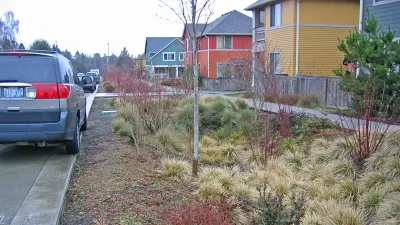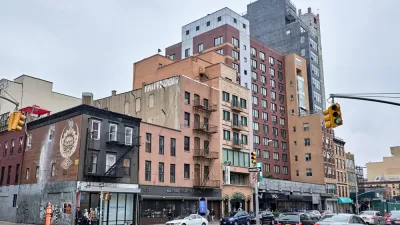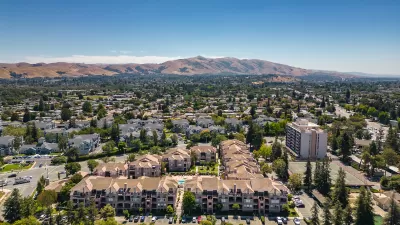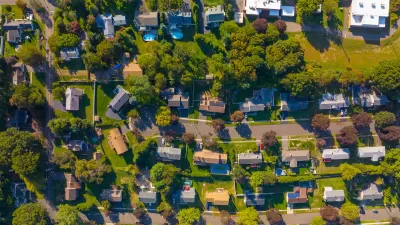The name change to "neighborhood residential zoning" is meant to more accurately reflect the city's diverse neighborhoods, but the new legislation does not change permitted uses.

Last week, Seattle's city council voted to change the name of the city's single-family neighborhoods from "single-family zoning" to "neighborhood residential zoning." The council says they made the name change "so that our planning documents reflect the true character of Seattle neighborhoods, diverse housing, small businesses, and many different types of households."
The change reflects "a recommendation laid out in a 2018 report from the Seattle Planning Commission called 'Neighborhoods for All,'" but the legislation makes no changes to land use in these neighborhoods. According to the text of the law, the legislation is explicitly "not intended to have a substantive effect on the uses permitted" but simply to reflect the "vibrant neighborhoods" that already exist. Bill co-sponsor Councilmember Dan Strauss said the bill "does not change the uses, the height, bulk or scale of buildings in these areas."
Advocates of zoning reform are disappointed with the symbolic step. "A name change would not address harmful zoning or bring forth the mixed-zoning plans many housing justice advocates swear by. But [Councilmember and bill sponsor Teresa] Mosqueda’s office said that updating to more accurate language is an important step in grounding future, more meaningful changes to zoning laws in anticipation of the Comprehensive Plan update." The commission's report "calls for more than just the name change: it also recommends that more housing types be allowed within single-family zones" to relieve the housing crunch and provide more opportunities for affordable housing.
FULL STORY: Council Gives Single-Family Zoning a Name Change but Not the Boot

Planetizen Federal Action Tracker
A weekly monitor of how Trump’s orders and actions are impacting planners and planning in America.

Chicago’s Ghost Rails
Just beneath the surface of the modern city lie the remnants of its expansive early 20th-century streetcar system.

San Antonio and Austin are Fusing Into one Massive Megaregion
The region spanning the two central Texas cities is growing fast, posing challenges for local infrastructure and water supplies.

Since Zion's Shuttles Went Electric “The Smog is Gone”
Visitors to Zion National Park can enjoy the canyon via the nation’s first fully electric park shuttle system.

Trump Distributing DOT Safety Funds at 1/10 Rate of Biden
Funds for Safe Streets and other transportation safety and equity programs are being held up by administrative reviews and conflicts with the Trump administration’s priorities.

German Cities Subsidize Taxis for Women Amid Wave of Violence
Free or low-cost taxi rides can help women navigate cities more safely, but critics say the programs don't address the root causes of violence against women.
Urban Design for Planners 1: Software Tools
This six-course series explores essential urban design concepts using open source software and equips planners with the tools they need to participate fully in the urban design process.
Planning for Universal Design
Learn the tools for implementing Universal Design in planning regulations.
planning NEXT
Appalachian Highlands Housing Partners
Mpact (founded as Rail~Volution)
City of Camden Redevelopment Agency
City of Astoria
City of Portland
City of Laramie





























